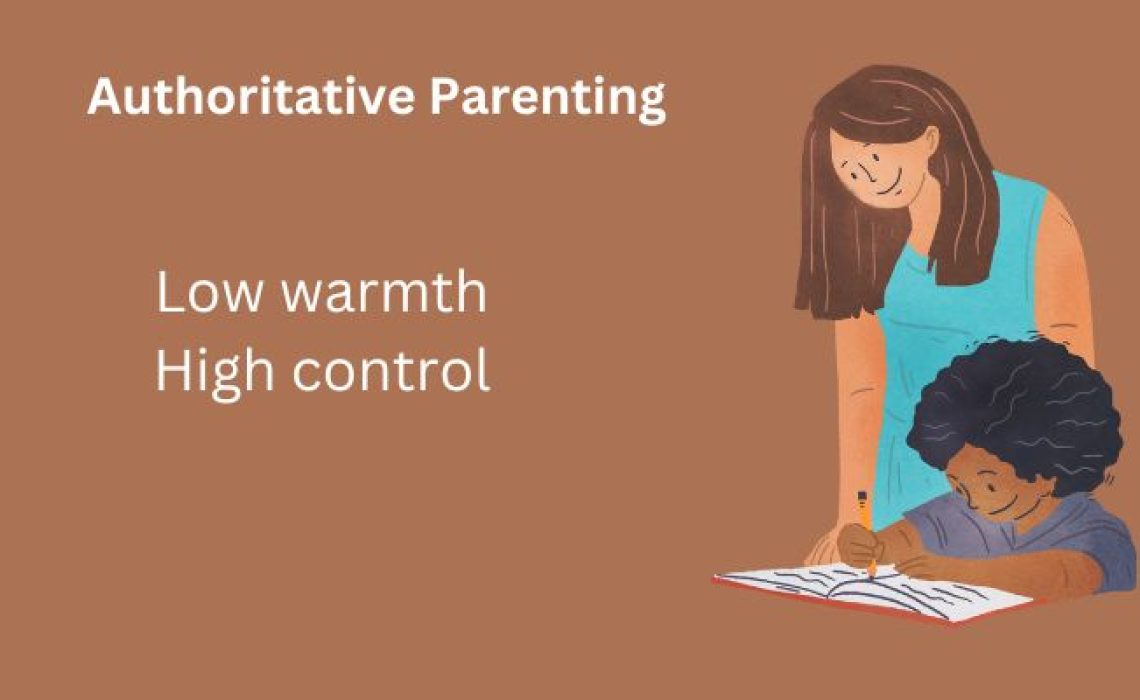Authoritative parenting is a style of raising children that involves a lot of warmth, responsiveness, and support, along with rules and expectations that are right for the child’s age and consistent discipline. This method creates a caring and supportive environment for children while also giving them structure and direction. This can lead to good things, like better academic performance, better social skills, better emotional control, higher self-esteem, and a lower risk of behaviour problems.
Table of Contents
ToggleWhat does authoritative parenting do to a child?
Authoritative parenting is a style of raising children that involves a lot of warmth, responsiveness, and support, along with rules and expectations that are right for the child’s age and consistent discipline. Research has shown again and again that authoritative parenting is suitable for a child’s development in many ways, including:
- Children whose parents are authoritative tend to do better in school than those whose parents are either authoritarian or lax.
- Better social skills: Children with parents who are in charge are more likely to get along well with their peers and have good social skills.
- Greater emotional regulation: Children of authoritative parents tend to have better emotional regulation and coping skills.
- Higher self-esteem: Children of authoritative parents tend to have higher self-esteem and a greater sense of self-worth.
- Children with authoritative parents are less likely to do bad things or take risks, like using drugs, drinking too much, or getting sexually active at a young age.
Overall, authoritative parenting gives kids a caring and supportive environment that helps them grow and succeed in a lot of different ways.
What are examples authoritative parenting?
Authoritative parenting can take many different forms, but some examples of how it might look in practice include:
- Setting clear expectations: Authoritative parents set clear expectations for their children’s behaviour, but they also explain why the rules are in place and encourage their children to understand and follow them.
- Encourage independence: Authoritative parents want their kids to be independent and able to take care of themselves, but they also help and guide them when they need it.
- Consistent discipline: Authoritative parents are consistent with their discipline, but they also use a variety of techniques, like positive reinforcement and natural consequences, instead of just punishment.
- Showing warmth and support: authoritative parents are warm and supportive, and they encourage open communication with their children, allowing them to express their thoughts and feelings.
- Respecting children’s independence: Authoritative parents respect their children’s independence and let them make decisions that are right for their age, but they also set limits and help them when they need it.
- Being responsive: Parents who are in charge pay attention to their children’s needs and help them feel better when they are upset or upset.
Overall, authoritative parenting means making a safe and loving environment while also setting clear rules and being consistent with discipline. This method helps kids learn the skills and gain the confidence they need to do well in life.
What are the side effects of authoritative parenting?
While authoritative parenting is generally beneficial, it can have unintended consequences for children depending on the circumstances, the child’s personality, and the child’s specific requirements. Some potential side effects of authoritative parenting may include:
- Anxiety: Children of authoritative parents may feel a lot of pressure to meet their parents’ expectations, which can lead to anxiety and stress.
- Overcontrol: Sometimes, authoritative parents can be too controlling or strict, which can make it hard for their children to be free and independent.
- Rebellion: Even though children of authoritative parents are less likely to act badly, they may still rebel against their parents’ expectations if they feel too restricted or criticized.
- Perfectionism: Children of authoritative parents may feel that they need to be perfect in order to meet their parents’ high expectations, which can lead to unrealistic standards and a fear of failure.
- Lack of spontaneity: Parents who are too controlling may have strict rules and schedules, which can make it hard for their children to explore their interests and be spontaneous.
It’s important to keep in mind that these problems aren’t necessarily caused by authoritative parenting, but rather by how it’s used. These bad effects are less likely to happen when authoritative parenting is balanced with warmth, responsiveness, and flexibility.
Pros and cons of the authoritative parenting style
There are several pros and cons associated with authoritative parenting:
Pros:
- The social and emotional outcomes of children raised by authoritative parents are typically better than those raised by other parenting styles.
- They are more likely to be independent, confident, and socially skilled, and less likely to act out in bad ways like being violent or breaking the law.
- Children whose parents take an active role in their education and provide them with the tools they need to succeed in school tend to fare better overall.
- They have a higher sense of responsibility and are better at making decisions and solving problems.
Cons:
- Authoritative parenting may not work for all children, as every child is different and has different needs and temperaments.
- Supporting, guiding, and giving feedback to children takes a lot of time and energy from the parent. This can be hard for parents who have busy schedules or other responsibilities.
- The high expectations and standards authoritative parents set may pressure their children. And lead to anxiety or stress.
- There is a chance that the child will depend too much on their parent’s approval and validation. Which can make them less independent and less good at making decisions.
Even though authoritative parenting can have some negative effects. Research shows that it usually has positive effects on children. It gives parents a balanced way to raise their kids that combines high expectations with warmth and support. This helps kids learn important skills and traits that will help them throughout their lives.
Conclusion
In the end, authoritative parenting is a style of raising children that focuses on warmth, responsiveness, support, and consistent discipline. This method helps children gain the skills and confidence they need to succeed in life. It has been linked to a wide range of positive outcomes, such as better academic performance, better social skills, better emotional control, higher self-esteem, and a lower risk of behaviour problems. Authoritative parenting helps children grow up to be strong, confident people who can handle the challenges of life. It does this by giving them a caring and supportive environment and setting clear rules and boundaries.










1 thought on “Authoritative Parenting: Nurturing Kids for Success and Well-Being””
Pingback: "Co-Parenting: Strategies for Success after Separation or Divorce."